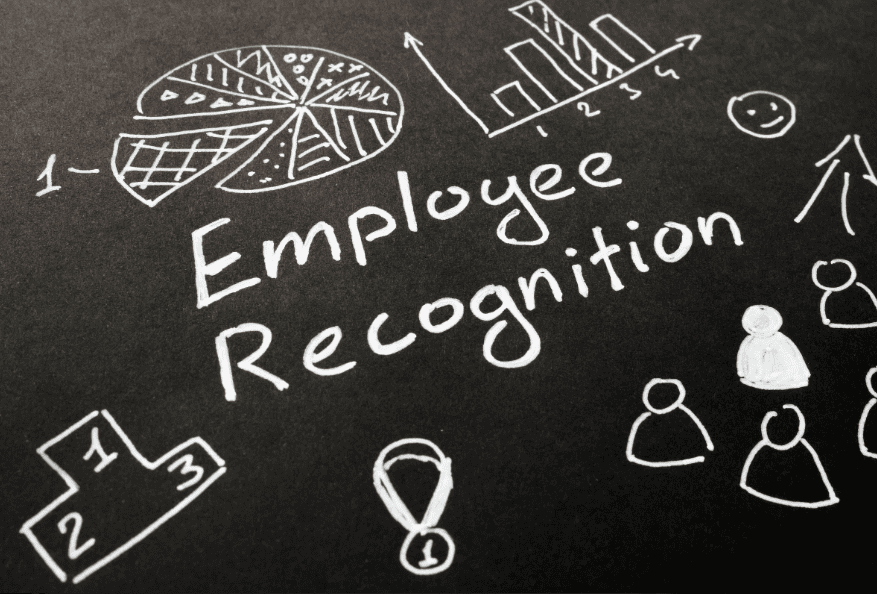Employee recognition is essential for a healthy work culture. But not all managers make it a priority. On this post, let’s discuss why employee recognition is important and crucial in any organization.
Table of Contents
Low morale can affect every aspect of a company’s operations. Having high confidence inspires employees to do their best and improve their work. Often, this is the result of an effective recognition program. This can come as a handwritten note or as part of one-on-ones and performance conversations.
So, why would you be interested in paying attention to employee recognition within your company? Let’s look at a couple of good reasons:
Employee Recognition Builds Trust
What is employee recognition? Employee recognition programs are a powerful way to build trust by showing your team that their excellent work will not go unnoticed. When your employees receive credit for their efforts, they know their hard work will be rewarded, and they’re more likely to stay at your company.

However, it’s essential to recognize your team members in ways that speak to them and their preferences. For example, some people prefer a public recognition announcement or monetary rewards. In contrast, others may enjoy more personal gestures like handwritten notes or a lunch with a company leader.
Also, remember to be consistent with employee recognition, especially if you’re using a peer-to-peer recognition model. This will ensure everyone’s hard work is appreciated, and your recognition program significantly impacts employees’ happiness and performance.
It Creates a Safe Environment
People like to know their efforts and contributions are noticed, especially if they align with company values. Employee recognition programs that reward employees for behaviors that embody the importance of the organization have been shown to increase employee retention and morale.
Employees feel supported when they hear peers, managers, and leadership admire their work. This is important for eliminating imposter syndrome and helps develop the confidence that they can continue to perform at high levels when new challenges arise.
Reinforcement is a powerful tool, and employee recognition is one of the most effective ways to use it. Providing feedback specific to an individual’s performance (publicly or privately) and explaining how the behavior aligns with company values is more meaningful than simply saying “thank you.” It can be as simple as a pat on the back or a quick email.
It Creates a Healthy Work Environment
The benefits of employee recognition extend beyond the employees themselves. When staff feel valued, they feel more connected to the company’s culture and values. This connection reduces turnover and helps employees remain engaged and motivated.
Employees who feel disconnected from work quickly fall behind on critical projects. They may doubt that their efforts matter and can affect the bottom line. Frequent, meaningful recognition helps employees connect to the company culture, boosting morale and performance.
For example, some team members send each other encouraging eCards and discounts for tech products and theater tickets. Peer-to-peer recognition helps team members feel connected, primarily if many work remotely.

It Strengthens Team Cohesiveness
When team leaders recognize employees individually, it creates a sense of belonging and community in your team. This is particularly important when it comes to reducing turnover. Employees who don’t feel connected to company culture are likelier to leave for a better fit.
Recognition can take many forms. It can be a monetary bonus, an experiential reward, or a personal note of appreciation. Each type of recognition can impact the recipient differently, so it’s vital to cater your program to each individual’s preferences.
For example, some employees may prefer public recognition, while others enjoy private shout-outs from their managers. The key is ensuring that credit is consistent and paired with meaningful feedback. Then, your employees will know that their work is genuinely appreciated.
It Creates a Positive Work Culture
One of the biggest motivators for employees is feeling respect and appreciation from their peers. Employees who don’t feel like their work is appreciated are twice as likely to quit within a year. Creating a culture of employee recognition is essential for your business and can be done through many different methods.
Besides monetary bonuses and extravagant awarding events, you can promote peer-to-peer recognition or simple everyday thank-yous. These daily interactions are essential for building a solid company culture and increasing morale.
Peer-to-peer recognition can be as easy as saying hello and goodbye to each other before and after work or praising a coworker for their quick thinking or dedication. When a colleague thanks an employee, it feels more personal and impacts the individual more.



